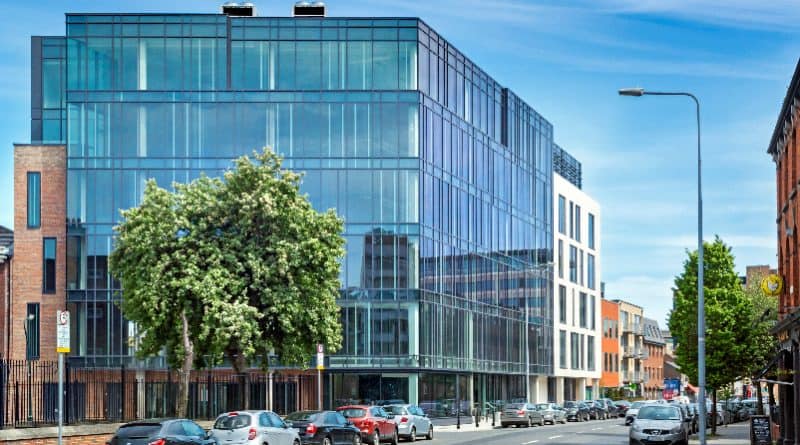Demand from “Big Tech” underpins strong office market in Dublin – HWBC
The amount of office construction in Dublin has reached some of the highest seen but there is still little evidence of overcapacity in the market, according to HWBC’s H1 2018 Dublin Office Market Review published today.
HWBC reports that over 4m sq. ft. of office space is under construction in Dublin but that with demand from ‘Big Tech’ growing quarter on quarter, the market for prime office space continues to strengthen. Demand from co-working space providers has also been a significant component of tenant demand with US firm WeWork accounting for a massive 15% of the market take up this year.
Grade A CBD office rents were steady at €65 per square foot by the middle of the year, however many headline rents are based on generous rent-free periods of up to 12 months. HWBC expects these tenant incentives to reduce over the next 12 months as occupier demand continues to be strong. Grade A suburban rents were also steady at €30 per sq. ft. HWBC notes that competition for space in the city centre means that many tenants are looking at suburban locations and the city fringe to fulfil large space requirements.
Whilst the office market is supplying enough space to meet demand, a major concern is the lack of affordable rental accommodation for the thousands of workers being hired for new jobs created by multi-nationals investing in Ireland. HWBC points to the fact that some large occupiers have looked to combine office and staff needs in the same location: JP Morgan and Google have purchased office buildings at Capital Dock and Boland’s Quay respectively, with substantial apartment complexes on the same site.
The strong office demand is supported by the pace of growth in the Irish economy and the labour market approaching full employment. Important differences to the last construction cycle are the demand pipeline justifying the level of construction activity, the fact that developments are well-targeted at preferred tenant locations, and the lack of reckless domestic bank lending to poorly located schemes.
Tony Waters, Managing Director of HWBC said: “The fact that construction levels are at boom time levels might ring the over-supply alarm bells if the continuing occupier demand in the Dublin office market wasn’t so strong. Over 70% of the space due for completion this year is already pre-committed to tenants. With a robust demand pipeline and well targeted development locations, this construction cycle is very different from the previous speculative boom.
The market has been underpinned by the continuing demand from ‘Big Tech’, with companies like Facebook, Amazon and Salesforce all in expansion mode. Companies in the technology, telecoms and media sector dominate market take up, consistently accounting for 40% of transactions in recent years. The rapid growth of the co-working sector is another major component of demand, allowing occupiers the benefit of being able to expand rapidly without long-term lease obligations.”
In relation to Brexit, HWBC’s report says that whilst there have been wins from US and UK banking, insurance and legal companies, the surge in Brexit-related demand has not been the major driver of the market. Better infrastructure and connectivity in other European cities, and the difficult residential market, are amongst the reasons why some companies have not included Dublin in their Brexit contingency planning, however with the Brexit outcome still uncertain there may yet be additional movement in the months ahead.
Paul Scannell, HWBC Director and Head of Offices said: “Strong demand from the technology, finance and co-working sectors could mean take up of office space in 2018 surpasses the record level of 3.6m square feet in 2017. Prime rents in the city centre at around €60 to €65 per square foot look set to hold that level, rents for suburban locations like Sandyford are at €30 per square foot, and up to €33 at Dublin airport, which would be a new high for the suburban market.
With the countdown to the UK’s Brexit deadline fast approaching, the impact of companies relocating to Dublin has not been the main driver of tenant demand. So far over 20 companies have declared for Dublin as their post Brexit base, however we continue to face strong competition from other European cities, and the challenges in our residential market could be one of the factors that make companies look to relocate elsewhere.”


